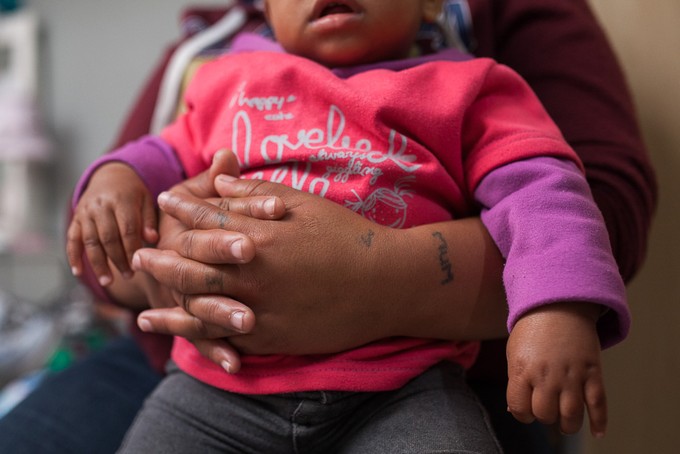

About half of infants eligible for social grants receive them in the country’s two wealthiest provinces, a lower rate than the other seven provinces. Archive photo: Ashraf Hendricks
15 December 2017
Fewer babies less than a year old get child support grants in the Western Cape and Gauteng despite being eligible.
This is according to the latest South African Early Childhood Review released last month by Ilifa Labantwana, UCT’s Children’s Institute, the Department of Planning, Monitoring and Evaluation in the Presidency (DPME), and Innovation Edge.
The annual review revealed dire inequalities across the country for children aged six and younger, most of whom live in rural areas with access to very few services.
The study found that 55% of poor infants in the Western Cape and 49% in Gauteng were not receiving the R380 monthly grant in 2015, the lowest of all the provinces. By comparison in the Eastern Cape 75% of poor infants were getting the grant.
Currently, 12 million of the 17.2 million grants paid to beneficiaries in 2017 are child support grants. The grant is given if a single parent has a monthly income of less than R3,800 (and several other criteria explained here).
The review suggested that a possible reason for the two urban provinces (Western Cape anf Gauteng) having lower uptake than the rural ones is that in these wealthier provinces social security officials “act as gatekeepers”. This makes it “more difficult for people to apply”.
Nandipha Mosia, spokesperson for SASSA Gauteng told GroundUp that “under no circumstances” does the agency deny citizens the right to apply for grants. “SASSA cannot confirm research outcomes conducted by independent researchers. SASSA would, however, appreciate any research done to indicate exactly where in the province these children are, so that we can target those specific areas.” Yet the government, via the DPME, which falls under Jeff Radebe, is a co-publisher of the review.
Mosia said the agency has marketing campaigns at clinics and public hospitals to help with increasing new applications for infants.
SASSA Western Cape did not respond to requests for comment from GroundUp.
According to the review, nearly two-thirds [four million] of South African children under the age of six live in poor households. “Some children are difficult to reach because they live in remote areas or may not come into regular contact with services like clinics.”
“Early access to the child support grant is associated with improved nutritional, health and education outcomes for children. Only two thirds of babies under a year receive the grant, and the share is even lower in the urban provinces,” said Katharine Hall, senior researcher at the Children’s Institute and co‐author of the review.
Hall said that the government needed to fix access to grant problems if it is to meet its goal of covering 95% of people eligible for social security benefits by 2019, a goal set out in the Medium Term Strategic Framework.